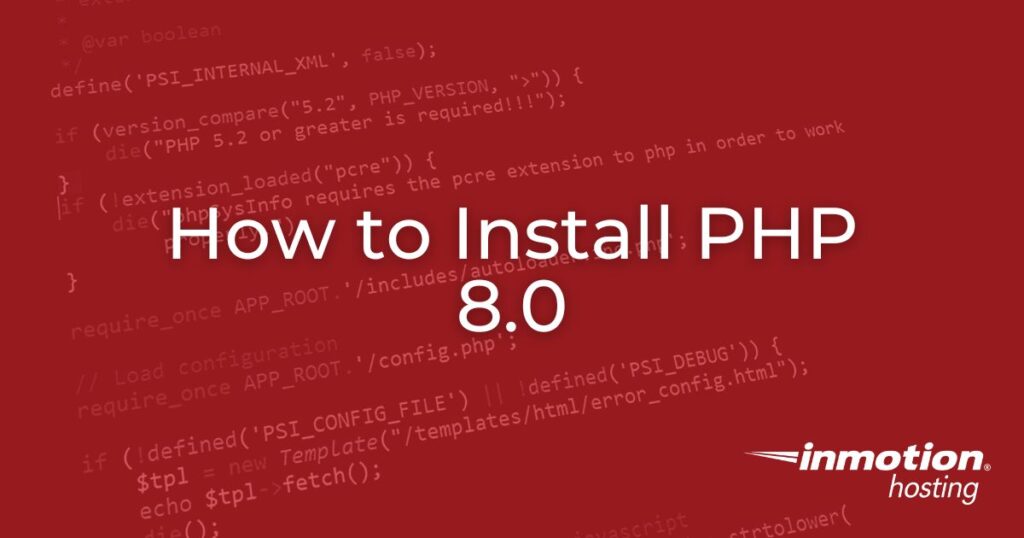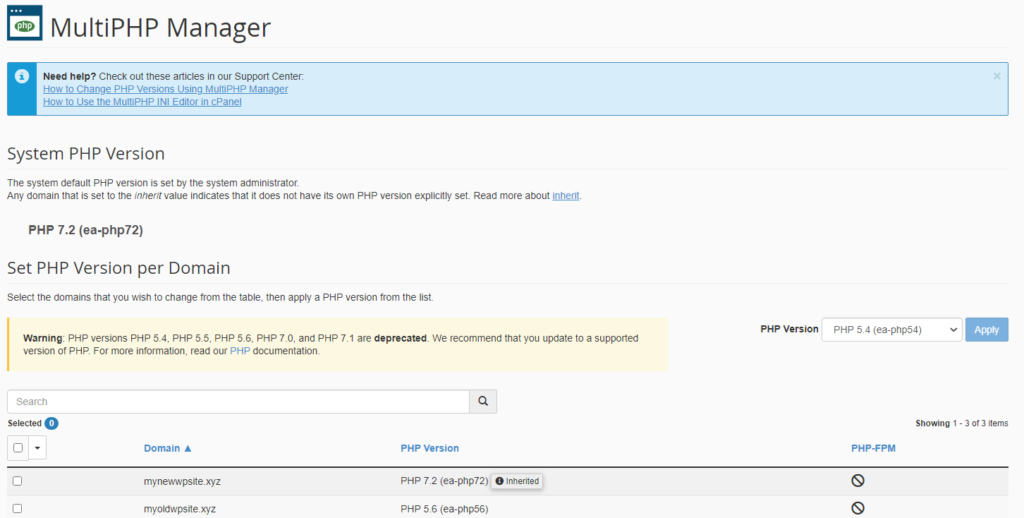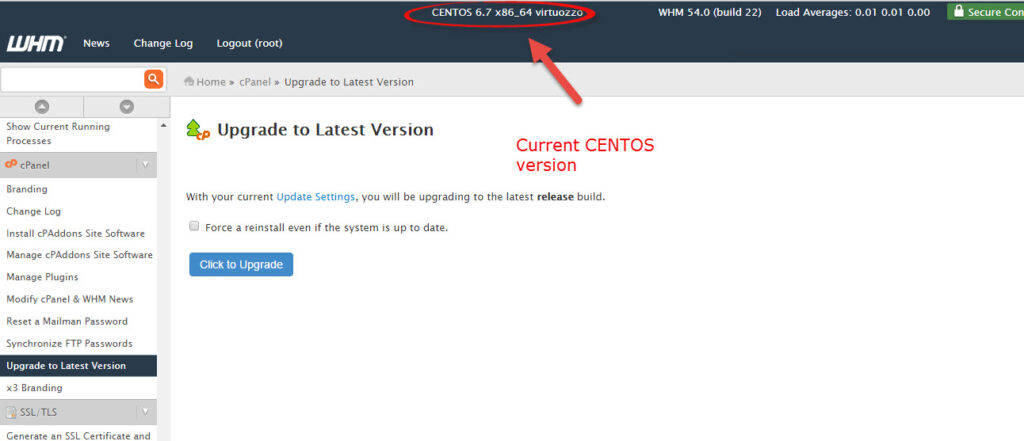Table of Contents

PHP 8.0 introduces many new features including Just In Time (JIT), type juggling, named arguments, and union types. Don’t worry. PHP 7.4 will be actively supported until the end of 2021. This gives website owners plenty of time to upgrade your PHP version for top performance and security on your PHP website hosting.
Read more about PHP 8.0 features at PHP.net.
As stated in our PHP 8.0 overview linked above, the challenge will be making sure your web applications are fully compatible. Below we’ll cover:

How to Install PHP 8.0
Shared Hosting
PHP 8.0 and related extensions are available for:
- CentOS 7 Shared Hosting (e.g. ecbiz###.inmotionhosting.com server hostnames)
- UltraStack Shared WordPress Hosting (ngx###.inmotionhosting.com server hostnames)
To check your CentOS version, log into SSH or cPanel Terminal. Type the following command to retrieve your server hostname and CentOS version:
The number after vz indicates whether you’re using CentOS 7 or 6.
CentOS 6 users wanting to implement PHP 8.0 will need to contact Live Support to request a free migration to a CentOS 7.
CentOS 7 users can select PHP 8.0 from cPanel MultiPHP Manager as of February 25, 2021.

Managed VPS / Dedicated Server Hosting
PHP 8.0 and related extensions will be available for all cPanel-managed VPS and dedicated server customers using CentOS 7.
The easiest way to check your CentOS version: log into WebHost Manager (WHM) and check the top of the page.

Terminal users can log into SSH and use multiple commands to retrieve the CentOS version depending on your user privileges:
Regular user:
The number after vz indicates CentOS 7 or 6.
Root (administrative) user or user with sudo privileges:
The benefit of seeing multiple options is that one will likely become the most memorable for you at some point.
CentOS 7 cPanel server administrators can install the latest version of PHP in WHM with EasyApache 4. Then, you can set the default server PHP version and modify the PHP version for individual websites with MultiPHP Manager and MultiPHP INI Editor respectively.
CentOS 6 users wanting PHP 8.0 must contact Live Support for a free CentOS 7 migration.
Cloud Server Hosting
Linux cloud server users can install the latest PHP version from your distro repositories.
PHP Versions Supported in AlmaLinux 8
If you are using AlmaLinux 8, then only the following versions of PHP are available through EasyApache 4:
- PHP 7.2
- PHP 7.3
- PHP 7.4
- PHP 8.0
- PHP 8.1
The following versions PHP will not be available when using AlmaLinux 8.
- PHP 5.4
- PHP 5.5
- PHP 5.6
- PHP 7.0
- PHP 7.1
In order to see the most recent PHP versions available, you can run the following command:
AlmaLinux 8 does not provide support for loading the legacy versions of PHP (pre-version 7.2). Support for these earlier versions can loaded using CentOS.
What Supports PHP 8.0
Here’s the latest on PHP 8.0 support from the most popular self-hosted content management systems (CMSs).
Drupal 9.1 supports PHP 8.0. Create a backup before you update Drupal.
WordPress 5.6 and Joomla 3.9.23 have unstable support for PHP 8.0 as of February 2021.
Magento does not support PHP 8.0 as of February 2021.
If you have any questions regarding PHP version 8.0, contact technical support. Now that you’re using PHP 8.0, why not try out PHP’s built-in web server?
